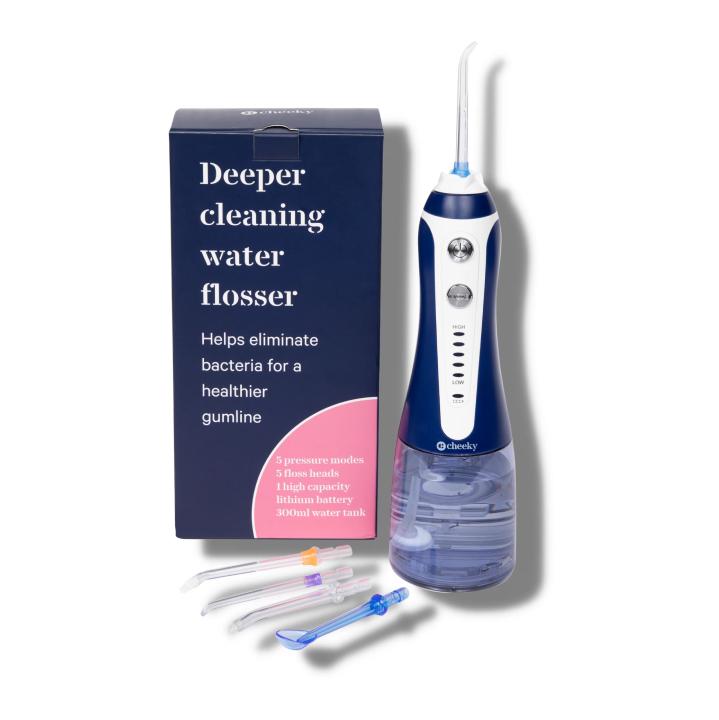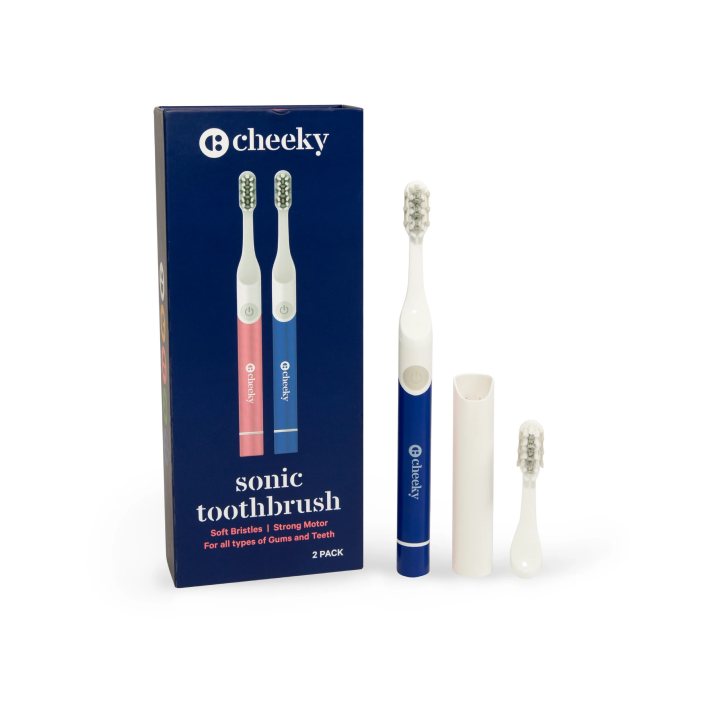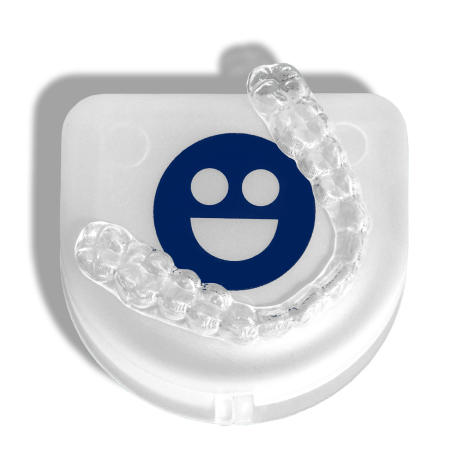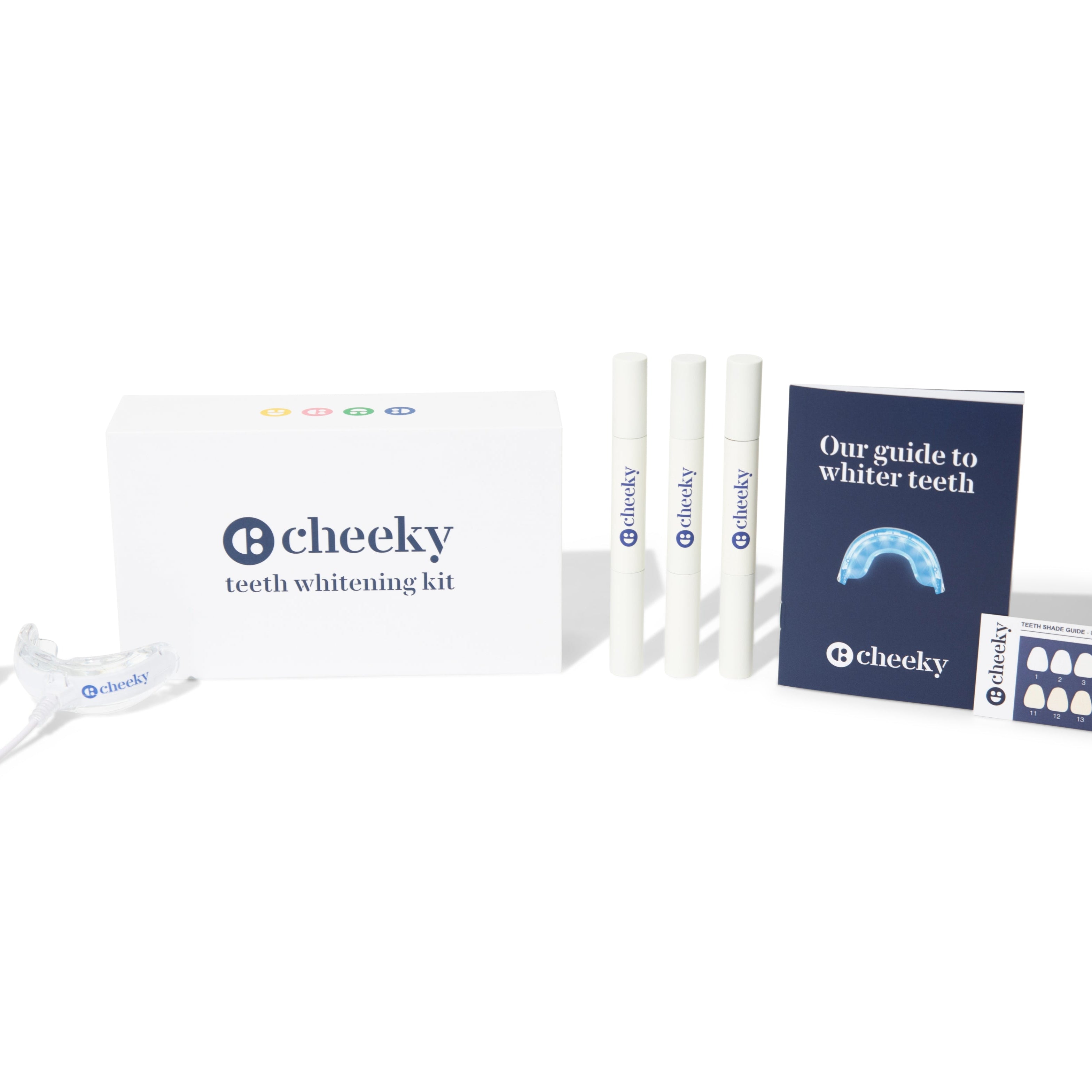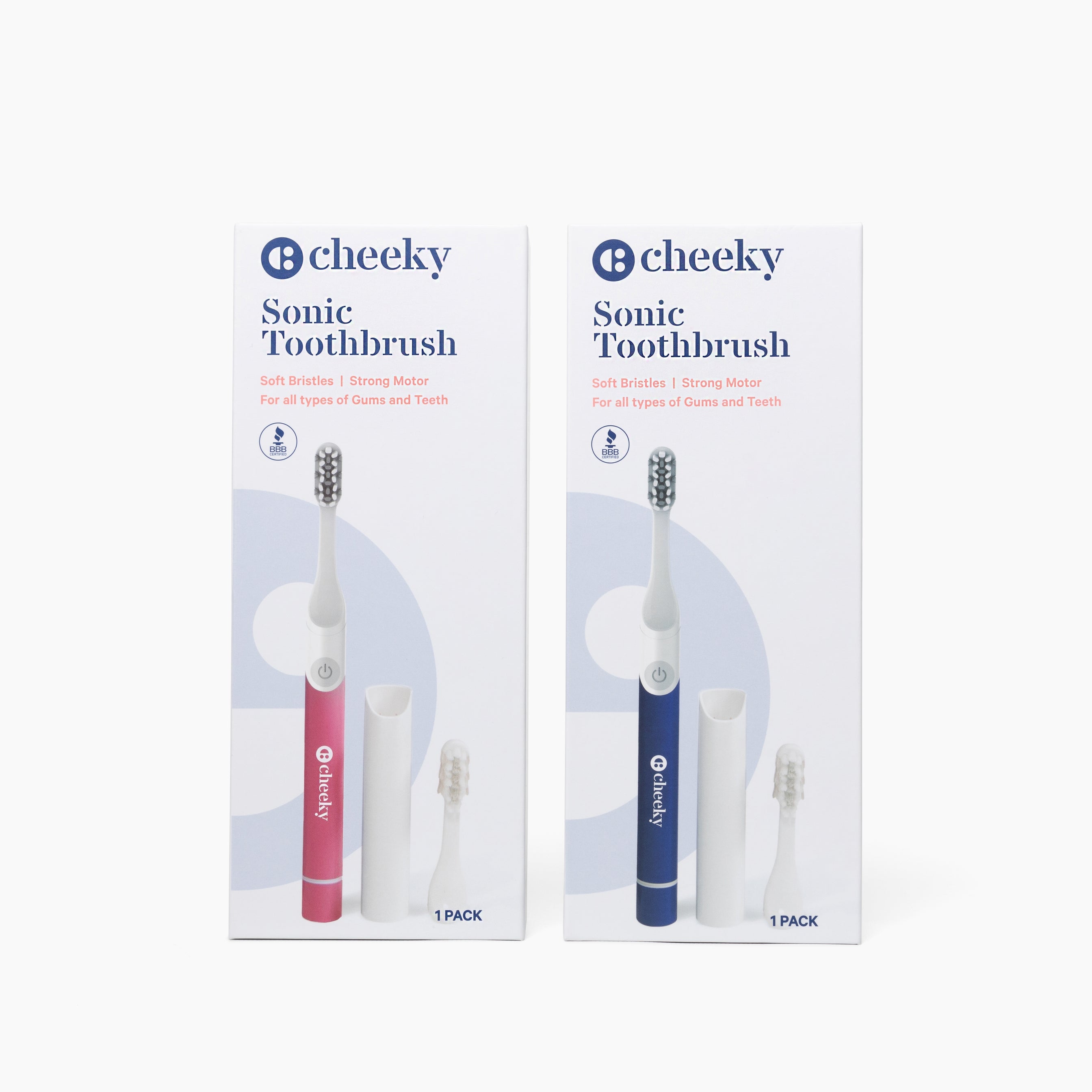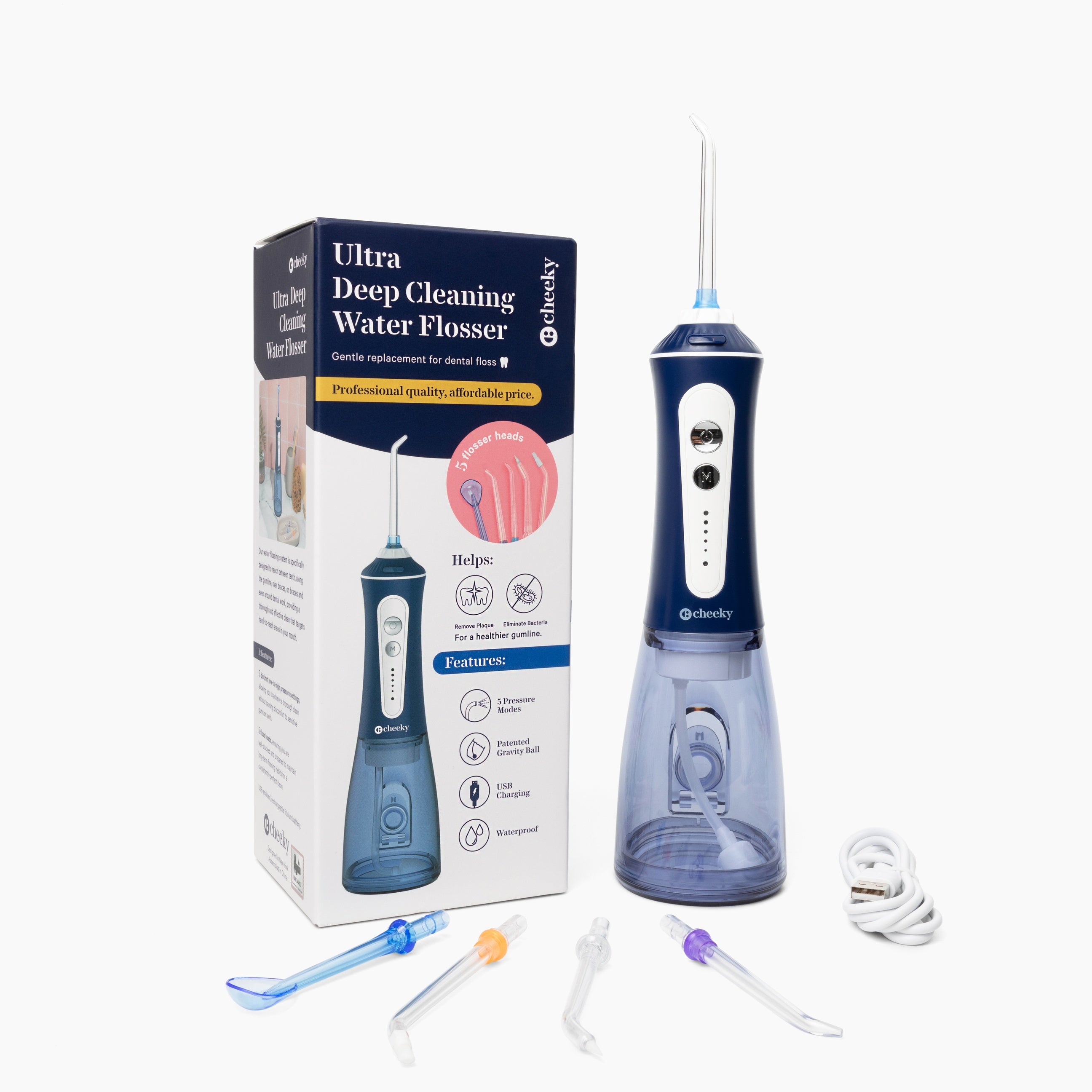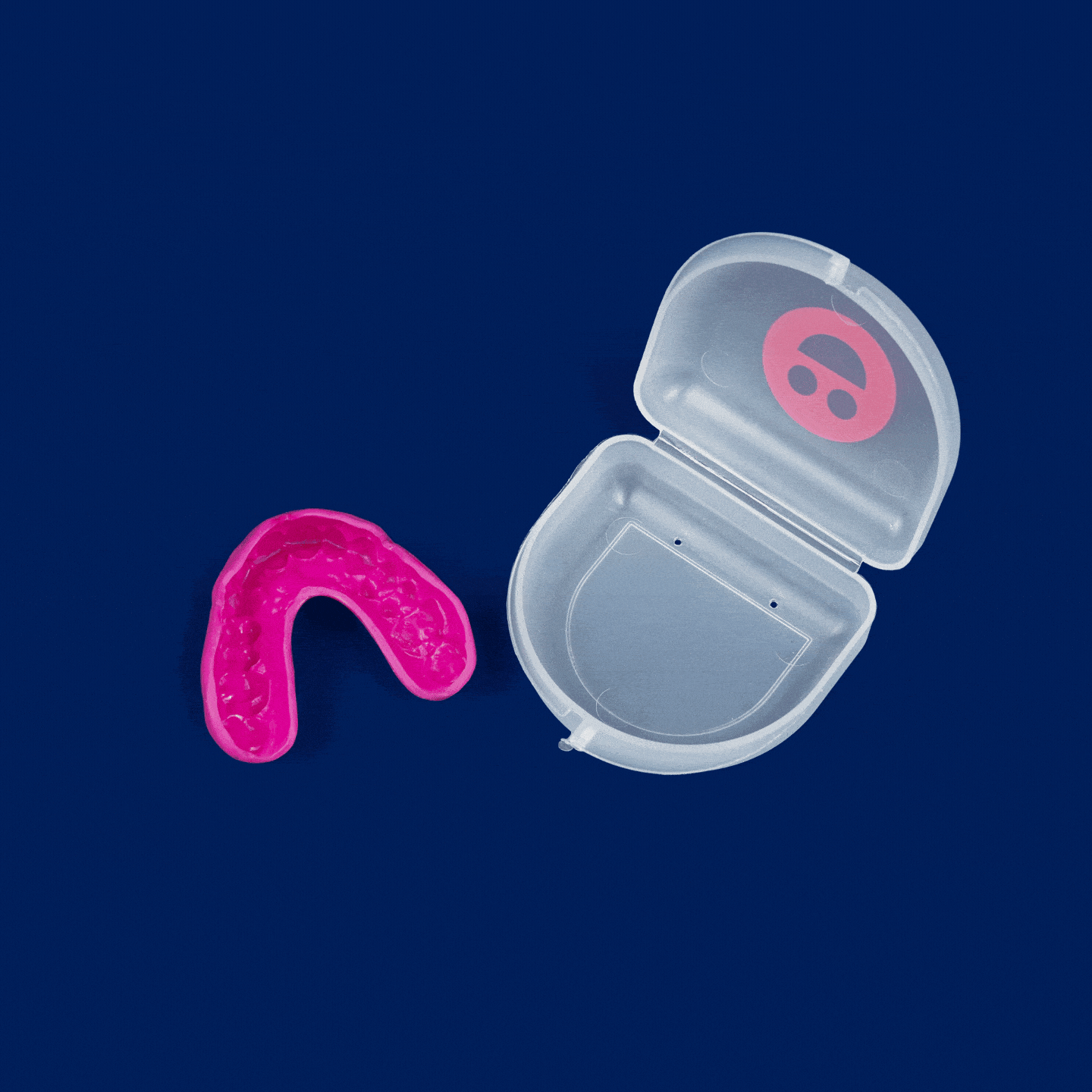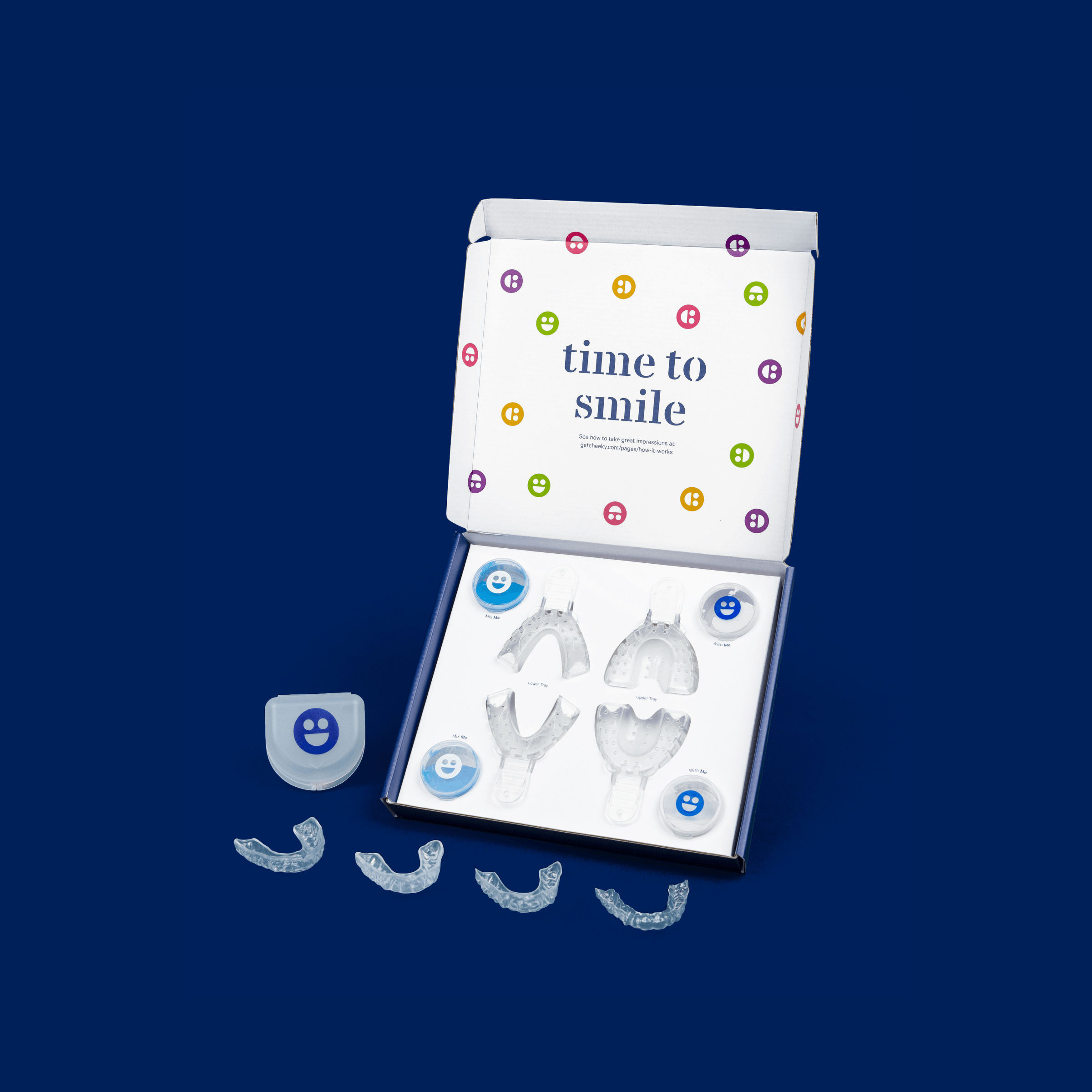Understanding Bruxism Symptoms: Recognize, Manage, and Treat Teeth Grinding
Bruxism often goes unnoticed, especially if it happens when you're sleeping. Many people are unaware of it until they visit a dentist or experience troubling symptoms. Bruxism can lead to severe dental problems, such as tooth pain, jaw pain, headaches, and sleep disorders. Therefore, it's important to recognize the signs early.
If you experience jaw pain, tooth sensitivity, or sleep interruptions, this guide is for you. We’ll discuss the common symptoms of bruxism, how to detect them, and the best treatment options.
What is Bruxism?
Bruxism is the habitual gnashing, clenching, or grinding of the teeth, typically at night but sometimes during waking hours. Even though it seems like a harmless habit, it causes a wide range of oral and physical health issues. The two main types of bruxism are:
-
Sleep Bruxism: This type of bruxism happens during sleep. Sometimes, the grinding can be loud enough to disturb others, leading to a poor night's sleep for the person with bruxism and their partner. Many people with sleep bruxism remain unaware until they start showing symptoms.
-
Awake Bruxism: This type occurs unconsciously during waking hours, often as a response to anxiety, frustration, or concentration. If you normally grind your teeth while awake, you’ll soon start to experience jaw muscle pain or tooth pain.
Causes of Bruxism
According to Kuhn and Türp (2018), there are several causes of bruxism, but the common risk factors include:
-
Stress and Anxiety: Emotional stress is among the primary causes of bruxism. Anxiety and stress cause physical tension caused by anxiety and stress, which is expressed through jaw clenching or grinding of teeth.
-
Sleep Disorders: Sleep apnea and sleep-related movement disorders can cause bruxism because they interrupt sleep and cause jaw clenching.
-
Misaligned Teeth: Dental misalignment or asymmetrical bite patterns can cause teeth grinding as the body tries to correct the alignment.
-
Other Risk Factors: Certain medications, recreational drugs, and alcohol increase the risk of bruxism. Temporomandibular joint disorder is also often linked to bruxism, as it can cause pain in the jaw joint, leading to grinding.
Related Conditions
Thomas et al. (2024) found that several other conditions are associated with bruxism, including:
-
Sleep Apnea: Obstructive sleep apnea can lead to teeth grinding as the body responds to interrupted breathing during sleep.
-
Temporomandibular Joint (TMJ) Disorders: The TMJ is responsible for jaw movement. Bruxism causes strain on this joint, leading to additional pain and discomfort in the jaw area.
-
Gastroesophageal reflux disorder (GERD): GERD causes stress, disrupted sleep, and tooth sensitivity, which are all risk factors of bruxism. It can trigger tooth grinding, which worsens sleep and creates a cycle between the two conditions.
-
Attention Deficit Hyperactivity Disorder: Some individuals with this disorder may be more prone to bruxism due to heightened stress or focus.
If you suspect you have bruxism, it's important to consult a professional to get an accurate diagnosis and suitable treatment.
Common Bruxism Symptoms
If you recognize the early signs of bruxism, you can prevent severe symptoms, such as long-term tooth damage, jaw pain, and other complications that affect your oral health (Lal et al., 2024). The following are the most common symptoms of bruxism, focusing on both physical and dental signs.
Physical Symptoms
Jaw Pain
One of the most common symptoms of bruxism is jawline or facial pain caused by the repetitive jaw clenching and teeth grinding. This can put a tremendous amount of pressure on the muscles of the jaw, making it painful, tender, and even difficult to open and close the mouth. The constant pressure can cause TMJ symptoms and irreparable damage to the jaw joints if left unaddressed.
Neck and Shoulder Pain
The tension created by grinding your teeth isn’t limited to the jaw. The muscles in the neck and shoulders can become tight as a result of excessive jaw strain. This often results in neck pain or shoulder discomfort, which is a common complaint among people who grind their teeth. Over time, this tension can lead to chronic muscle pain and increased discomfort.
Ear Pain
Although bruxism is primarily a dental condition, it can cause ear pain in some cases. This occurs because of the interaction between the jaw joints and the structures of the ear. Jaw clenching and teeth grinding put pressure on the jaw joints, which can radiate to the ears, causing a dull ache or heaviness.
Headaches
Another common symptom of bruxism is morning migraines or tension headaches. Teeth grinding puts strain on the jaw muscles, which can lead to headaches upon waking up. Bruxism-related headaches can also extend throughout the day, impacting your concentration and mood.
Dental Symptoms
Tooth Sensitivity
Teeth grinding can significantly weaken your tooth enamel, leading to tooth sensitivity. With worn-down enamel, your teeth become more sensitive to hot, cold, and sweet foods, leading to discomfort. This is a classic sign that your teeth may be grinding and clenching, especially if you’ve recently noticed increased sensitivity in your teeth.
Tooth Wear
With time, chronic teeth grinding results in extensive tooth wear. During grinding, the teeth clash with each other, losing their original shape and structure. This kind of wear will lead to teeth flattening, tooth shortening, and difficulty in chewing. Worn tooth enamel can also increase the risk of cavities and other dental issues.
Loose Teeth
In extremely severe cases, bruxism will result in tooth mobility. Continuous pressure exerted on the teeth during grinding shakes up the roots and loosens them in the gum. If you notice your teeth are loose or experience pain when chewing, seek professional dental services immediately.
Cracked Teeth
Teeth grinding can cause extensive structural damage to your teeth, resulting in cracked teeth. Bruxism can potentially lead to microscopic cracks that worsen over time. Such cracks may even reveal the innermost layers of the teeth, making them more susceptible to decay, infection, or further damage.
Behavioral and Lifestyle Indicators of Bruxism
Other than physical and dental symptoms, certain behavioral and lifestyle factors can indicate bruxism. Such symptoms include daytime jaw clenching, sleeping problems, or specific habits, such as frequent gum chewing, that increase the likelihood of teeth grinding (Lal et al., 2024).
Jaw Clenching
Many people who suffer from bruxism are unaware when they clench their jaw during the day, particularly because of stress, anxiety, or concentration. Tooth grinding is a common antecedent to jaw clenching and may lead to severe jaw tension and pain.
Grinding is characterized by sliding the teeth back and forth, whereas jaw clenching is usually performed by keeping the teeth firmly clenched. This is a habit that repeats itself over time and can become very uncomfortable in the jaw muscles. It can also lead to the development of TMJ disorders.
Sleep Disturbances
Bruxism, particularly sleep bruxism, has a tendency to cause severe sleep problems. If you’re waking up feeling unrefreshed on a daily basis or struggling to sleep, bruxism may be the culprit. People who grind their teeth during sleep will often experience disrupted sleep due to the physical tension built up as a result of grinding. You might encounter sleep disturbances such as:
-
Sleep Disorders: Individuals with sleep apnea or sleep-related movement disorders are more likely to grind their teeth. The alteration of normal breathing patterns may trigger jaw clenching and grinding since the body responds to the interruption of airflow.
-
Poor Sleep Hygiene: Some of these habits, such as lying awake in bed for too long and consuming caffeine late at night, might exacerbate bruxism symptoms. Unhealthy sleep habits are likely to lead to poor-quality sleep, which increases the risk of teeth grinding at night. Having a good routine is important to minimize the effect of bruxism on your sleeping pattern.
How to Recognize the Signs of Bruxism in Children
It's common for children to grind their teeth, especially when they're asleep. Most children will outgrow bruxism and leave the grinding habit behind, but monitor for signs that may appear during the teenage years.
Why Children Grind Their Teeth
Children tend to clench their teeth as a natural part of dental development. It usually happens at night, and parents hear grinding sounds or notice signs of wear on their child's teeth.
Bruxism Symptoms Unique to Children
A child who has bruxism can also experience earaches, trouble sleeping, or irritable behavior. Emotional suffering due to the pain from teeth grinding can manifest itself as frustration or anxiety.
When to Seek Help
If your child is grinding their teeth regularly or reports jaw pain or ear discomfort, see a pediatric dentist. A dental professional can evaluate the intensity of the problem and suggest appropriate treatments, like a custom night guard, to avoid tooth damage.
Diagnosing Bruxism
Accurate diagnosis is very important for effective bruxism management. If you experience jaw pain, headaches, or teeth sensitivity and suspect teeth grinding, it's important that you seek professional help. A dentist will examine your symptoms, assess the degree of tooth wear, and check for signs of jaw clenching or teeth grinding.
How to Diagnose Bruxism
The diagnostic process begins with a thorough dental examination. During the examination, a dentist looks for certain indicators of tooth wear, such as enamel wear, cracked teeth, or tooth sensitivity. The dentist may also question you about your jaw muscles and if you have ever experienced pain in your jaw joints.
The patient usually reports the first symptoms of bruxism. If you regularly wake up with persistent morning headaches or jaw pain, talk to your dentist about possible bruxism.
Diagnostic Tools:
-
Dental Observation: A dentist will look at your teeth for signs of wear and tear, which is an indicator of persistent teeth grinding. They will also check for damage to teeth or a flattened appearance.
-
Sleep Studies: If bruxism is caused by sleep apnea or sleep-related disorders, then a sleep study may be recommended. This will allow the dentist to monitor your sleep patterns and observe whether grinding occurs when sleeping.
-
X-Rays: In some cases, your dentist may recommend X-rays to examine the root structures of your jaw and teeth. This helps determine the degree of tooth damage and whether bone is involved in temporomandibular joint disorders.
Why Professional Diagnosis Matters
Professional diagnosis is necessary to create an effective plan for treatment. When you consult a dental expert, you can eliminate the obvious symptoms of bruxism and prevent other related issues, such as tooth wear, loose teeth, and destruction of the jaw joint. The sooner you identify the problem, the more options for teeth grinding relief and treatment will be available to you.
How to Prevent Teeth Grinding
Prevention is the best treatment when dealing with bruxism. If you address the symptoms of teeth grinding in their preliminary stages, you can prevent long-term damage to the mouth.
-
Use a Night Guard: Wearing a night guard is one of the best ways to prevent tooth damage and jaw pain caused by grinding. Cheeky’s custom-fit mouth guards are an excellent solution, providing comfort and protection without the high costs of a dental office visit.
-
Avoid Chewing Gum: Excessive gum chewing will encourage jaw clenching, which exacerbates bruxism symptoms. Avoiding this habit can help reduce teeth grinding and relieve tension in your jaw muscles.
-
Limit Caffeine and Alcohol: Caffeine, alcohol, and other recreational drugs are stimulants that can exacerbate bruxism, especially if consumed before bedtime. Avoid these substances to reduce teeth grinding and jaw clenching during sleep.
-
Regular Dental Checkups: If you grind your teeth regularly, visiting your dentist for checkups and cleanings can help maintain good oral health. Regular examinations can diagnose bruxism early and enable timely treatment, such as a mouth guard, to protect your teeth from wear.
How to Get Bruxism Treated
Once bruxism has been diagnosed, several treatments can be employed to reduce bruxism symptoms and prevent long-term damage to your oral health. If you're suffering from pain in your jaw, headaches, or tooth sensitivity, there are treatments available to provide significant relief.
Teeth Grinding Treatments
Mouth guards, especially custom night guards, are the most preferred treatment for bruxism. They create a barrier between the upper and lower teeth so they don't come into direct contact, which helps reduce pressure on the jaw muscles and joints. Here are some examples:
-
Custom Night Guards: These are comfortable and will let you feel and sleep better, without the cost of frequent dental visits. They protect against chipped teeth and gum recession, and can reduce headaches, jaw pain, and poor sleep.
-
Custom Clear Retainers: These are dentist-approved solutions, especially in post-treatment care, for those who grind their teeth intensely. A good example is the Cheeky retainer, which prevents unwanted shifting, protects against chipped teeth, and keeps your teeth straight.
-
Sports Mouth Guards: These are designed to protect your teeth, giving you maximum comfort and durability. Cheeky's sports mouth guard, for instance, provides a secure and lightweight fit for high-impact activities like boxing, rugby, and football.
Lifestyle Changes Bruxism Management
-
Stress Reduction Techniques: Since stress is one of the leading causes of teeth grinding (awake bruxism), including stress reduction techniques in your daily routine can make a significant difference. Activities such as mindfulness, meditation, yoga, and exercise can minimize the effects of stress on your jaw muscles as well as your overall health.
-
Improving Sleep Hygiene: Good sleep hygiene is very important for anyone with sleep bruxism. Proper restful sleep can reduce teeth grinding. Simple ways to improve sleep hygiene include:
-
Sticking to a regular sleep schedule
-
Avoiding caffeine, recreational drugs, alcohol consumption, or nicotine before bed
-
Creating a relaxing bedtime routine, such as reading or taking a warm bath.
Medical Treatments
-
Physical Therapy: For those who grind their teeth aggressively to a point of jaw tension or pain, physical therapy can help relieve the discomfort. A physical therapist can assist you in exercises that relieve muscle tension and improve jaw movement.
-
Prescription Medications: In some cases, your dentist might prescribe medications like muscle relaxants or anti-anxiety agents to manage the symptoms of bruxism. These can relax the muscles and reduce anxiety, which could be the reason why you’re grinding your teeth.
-
Oral and Maxillofacial Surgery: In severe bruxism, if other treatment methods have been unsuccessful, surgery may be the only choice. Oral and maxillofacial surgery is typically a last option for individuals with severe jaw trauma or TMJ disorders to prevent teeth grinding.
How Cheeky Products Can Help with Bruxism Symptoms
If you're struggling with teeth grinding, Cheeky has the perfect solution. We design our custom-fit night guards to relieve jaw pain, reduce the risk of tooth damage, and help you get better sleep. Unlike traditional mouth guards, our guards are affordable, effective, and tailored to your unique dental structure, offering a comfortable, lasting solution to bruxism.
Order Your Impression Kit Today
Getting started is easy with our telehealth dental impression checkup. Simply order your impression kit, take an impression of your teeth, and send it back to us using the prepaid return mailer. In just 7–10 business days, you’ll receive your custom night guard, ready to provide relief from grinding and protect your smile. Plus, all orders come with free shipping and a 30-day money-back guarantee.
Frequently Asked Questions
What Is the Most Effective Treatment for Bruxism?
The most effective treatment for bruxism typically includes using a mouth guard or night guard to prevent teeth grinding and reduce the pressure on your jaw muscles. Other treatments may involve stress reduction techniques, improving sleep hygiene, and physical therapy to relax the jaw muscles. For severe cases, your dentist may recommend dental correction or medications to help manage the condition. Regular dental check-ups are important to monitor the progress and prevent further damage.
Can Amitriptyline Help with Bruxism?
Amitriptyline is a tricyclic antidepressant that is sometimes prescribed to help manage bruxism, especially when it’s related to mental health issues like anxiety or depression. It may help relax the muscles involved in jaw clenching and reduce the dull headache that often accompanies bruxism. But it’s always best to seek advice from a healthcare professional before taking any medication to ensure it's the proper treatment for your unique situation.
How Do I Cure My Sleep Bruxism?
You can cure sleep bruxism by using a custom night guard to protect your teeth during sleep. Additionally, stress reduction techniques such as mindfulness and yoga can help reduce the grinding caused by anxiety. Ensuring good sleep hygiene and managing conditions, such as apnea or other sleep disorders, may also help. Consult with a sleep center or a healthcare provider to get further guidance on how to manage and treat bruxism effectively.
Which Medications Can Help Treat Bruxism?
There are certain medications that can potentially treat bruxism, like muscle relaxants, anti-anxiety drugs, and occasionally oral medicine, such as benzodiazepines or antidepressants like amitriptyline. These reduce the stress that causes teeth grinding. However, it's best to consult a healthcare professional to find out the ideal treatment for your condition and health requirements.
Which Supplements Help Reduce Teeth Grinding?
While there's no specific supplement to completely cure bruxism, some individuals find relief by taking supplements that promote muscle relaxation and reduce stress. Magnesium is often recommended for relieving pain and reducing muscle tension, which can help with jaw pain from grinding your teeth. Vitamin B6 and valerian root may also assist in reducing anxiety and improving sleep quality, potentially reducing symptoms of teeth grinding. Always consult with your healthcare provider before starting any new supplements.
Conclusion
Bruxism may seem like a minor issue, but if left untreated, it can cause immense damage to your dental health, leading to jaw pain, tooth wear, and headaches. If you identify the symptoms early and take preventive measures, such as wearing a mouth guard and stress reduction, you can actually minimize the impact of teeth grinding on your health to a large extent.
Cheeky's custom-fit night guards offer a cost-effective and efficient solution for individuals who grind their teeth constantly. Don't let your oral health deteriorate on your watch. Take action today and wake up feeling refreshed with a pain-free, restful night's sleep.
References
Kuhn, M., & Türp, J. C. (2018). Risk factors for bruxism. SWISS DENTAL JOURNAL SSO–Science and Clinical Topics, 128(2), 118-124.
Lal, S. J., Sankari, A., & Weber, K. K. (2024). Bruxism management. In StatPearls [Internet]. StatPearls Publishing.
Thomas, D. C., Colonna, A., & Manfredini, D. (2024). Obstructive sleep apnoea, sleep bruxism, and gastroesophageal reflux–mutually interacting conditions? A literature review. Australian Dental Journal, 69, S38-S44.
